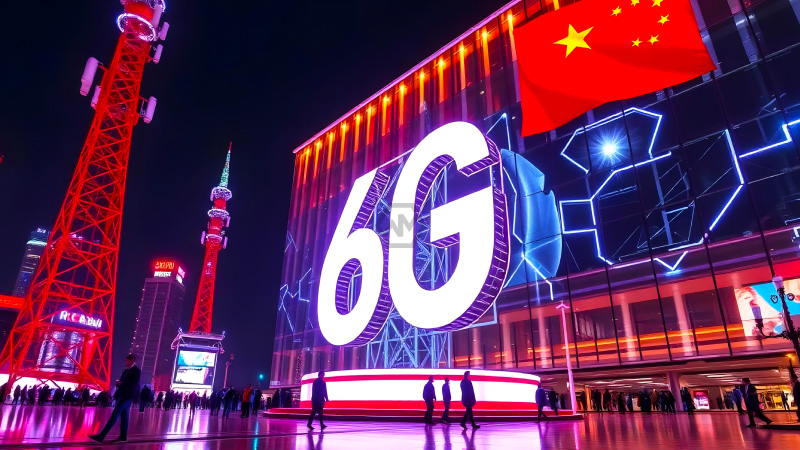- China introduces 6G standards approved by the ITU, focusing on immersive communication and AI integration.
- East Asian telecom operators lead 6G development, while Europe and the US show less enthusiasm.
- 6G aims for microsecond-level speeds, enhanced AI capabilities, and improved energy efficiency.
China has taken a significant step in advancing global telecommunications by introducing three key 6G technology standards approved by the International Telecommunication Union (ITU).
While China’s progress in 6G is moving forward, other regions such as Europe and the US have been slower in adopting 5G and exhibit less enthusiasm for 6G development.
East Asia Leads the Charge in Global 6G Standardization
China’s introduction of three 6G technology standards marks a pivotal moment in the global telecom industry. Approved by the International Telecommunication Union (ITU), these standards focus on critical areas such as immersive communication, enhanced AI capabilities, and ultra-low latency. They align with ITU’s goals for 2030, aiming to transform future telecom networks with cutting-edge solutions for real-time data handling and content transmission.
Institutions like China Telecom and the Shanghai Advanced Research Institute (SARI) have been central in developing these new benchmarks, leveraging their extensive experience in communication technology. By actively setting 6G standards, China is strengthening its global reputation and laying the foundation for the next generation of mobile communication systems. This initiative highlights China’s commitment to driving technological innovation in telecom.
Meanwhile, operators in East Asia, particularly in China, Japan, and South Korea, are taking a proactive approach to 6G development. Companies like China Mobile and Japan’s Docomo are leading the charge in advancing 6G technology, while European and US operators show less urgency in participating in the race. This discrepancy in enthusiasm could have long-term implications for global competitiveness in telecom infrastructure.
The development of 6G is expected to drastically change the wireless landscape, offering microsecond-level speeds, ultra-low latency, and advanced AI integration. Security will also be a focal point, with enhanced safeguards against cyber threats and increased energy efficiency to optimize network performance during periods of low demand. These advancements will support a range of new services and applications, including smart cities, AI-powered systems, and immersive communication platforms.
The global telecom industry is entering a transformative era with 6G on the horizon. As nations race to establish new standards, China’s leadership could set the stage for a new technological landscape, with profound implications for communication and AI-driven applications.
“Immersive communication is more than just virtual reality; it’s about any service demanding high bandwidth, low latency, and high reliability.” — Cui Kai, IDC



